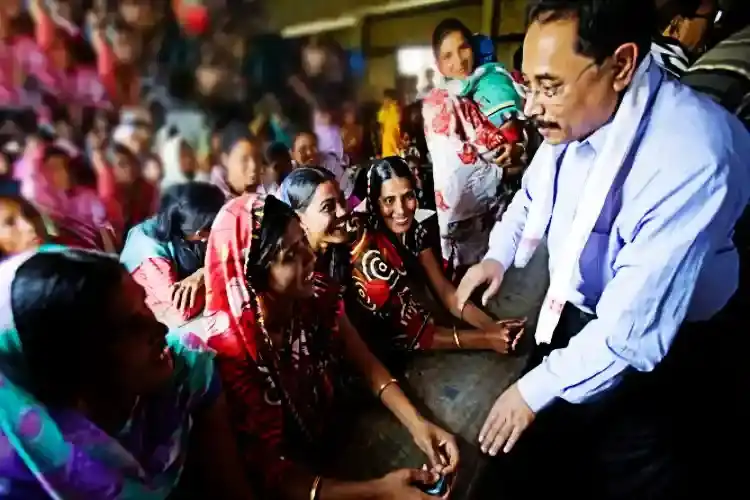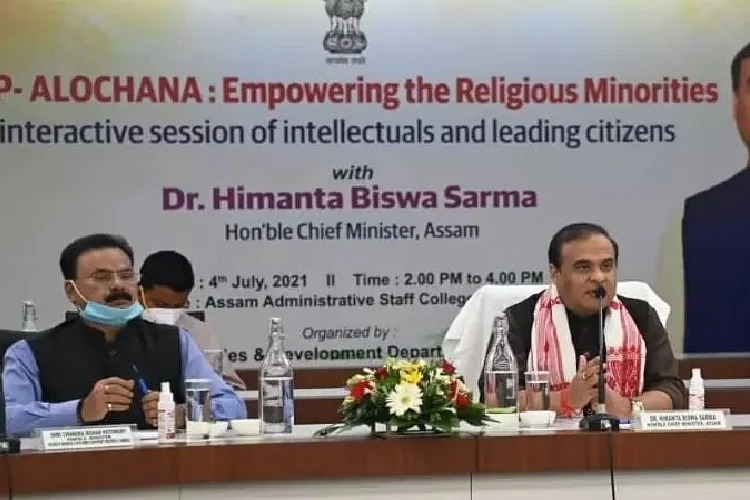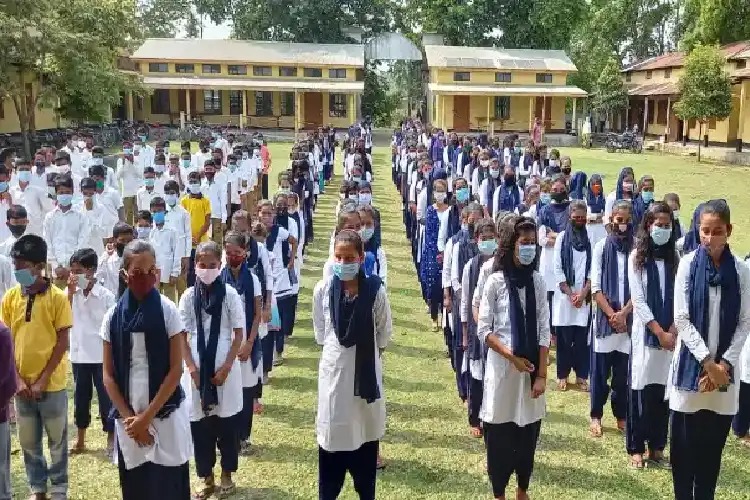Daulat Rahman/Guwahati
The Sub-Committee to study on population stabilization among indigenous Assamese Muslims constituted by the Assam Government has found that underage marriage, lack of education among women, high fertility rate, inadequate birth spacing, and reluctance to family planning are responsible for high population growth among the community.
The committee headed by renowned surgeon and Padmashree awardee Dr Illias Ali recently submitted his report to Chief Minister Himanta Biswa Sarma.
The committee has found that underage marriage is one of the most important factors for rapid population growth and underage marriage among indigenous Muslim women is 27.67% and among males is 17%. According to the committee, the age of marriage significantly determines the total fertility rate (TFR). The TFR of those who married at 18 years of age is 2.64, while the TFR of women who married above this age is 2.18.
Assam Chief Minister Himanta Biswa Sarma interacting with indigenous Muslims
The women with no education have TFR 3.41, women with primary education have TFR 2.86, and women with education till H.S.L.C level have TFR 2.26. Women with education to the level of Higher Secondary and above have significantly low TFR and that is only 1.58.
The Sub-Committee has found that among all the different indigenous Muslim communities, Deshi has the highest TFR of 2.71% followed by Julha at 2.46%, Moria at 2.27%, and Goria at 2.10%, and Syed1.90%. Excluding Moria and Julha (as their total population is significantly less) Deshi community has contributed the highest-burden of TFR among the indigenous Muslim communities of Assam.
It has also been found that birth spacing is one of the best natural methods of family planning. Unfortunately, birth spacing among indigenous Muslims is very low. Nearly 70.42% of women did not follow the minimum 3-year birth spacing norm while giving birth to the second child. Many Muslim families are not willing to discuss family planning and methods of contraception. It indicates that family planning is taboo for some Indigenous Muslims.
Speaking to Awaz-The Voice, Dr Illias Ali said education is the best contraceptive to ensure population stabilization among indigenous Muslims. Hence, priority should be given to universal education with a special focus on women’s education. He suggested that apart from formal education, the informal education system should be revamped to emphasise adult education.
Girl students in a Muslim school in Assam
"Establishment of women education institute should be set up in priority areas. Special and urgent measures need to be undertaken to empower women and girls socially and economically. An empowered girl or woman has earned the capability not only to take part in the family matters but also gives importance to her reproductive health, takes an adequate decision on when to marry and how many children she should have,” Dr Ali said.
The report recommends revamping the existing family planning wings of Government, particularly in South Salmara and Mancacher, Dhubri, Goalpara, Bongaigaon, Nalbari, Golaghat, and Nagaon. It has also been recommended for a special family planning drive among indigenous Muslims.
Ali said the special committees should be formed with the community leaders of indigenous Muslims in the districts with high TFR. The committee will guide, provide help and oversee the family planning programme in the respected districts namely South Salmara & Mancacher, Dhubri, Goalpara, Bongaigaon, Nalbari, Golaghat, and Nagaon.
On the other hand, the Sub-Committee constituted to study the health status of indigenous Assamese Muslims, has found the presence of illegal health services including quacks and unlicensed pharmacists in certain areas inhabited by the community.



